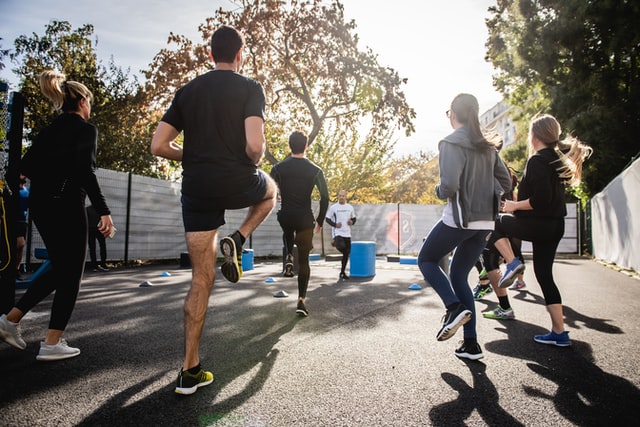Whether you’re already vegan or are looking to transition to a plant-based diet, there are some things you should consider to maximize your health and performance. A plant-based diet is, by definition, pretty restrictive. Since the entire approach focuses on cutting out entire food groups, many people who decide to go vegetarian or vegan make common mistakes.
Not only will not eating correctly harm your health and fitness, but it will also make following a plant-based diet unsustainable. Therefore, if you are looking to get the most from a vegan diet and stick to it, you should ensure your diet is healthy and balanced.
With that in mind, here are some tips to help you maximize your athletic performance while following a plant-based diet.
What Does Plant-Based Mean?
First off, let’s cover the basics. While it might seem obvious that those who follow them only eat plants, there are a few different variations to plant-based diets, so we need to cover these.
The term “vegetarian” is pretty broad, and there are several specific sub-categories of plant-based eating.
For example, lacto-ovo-vegetarians don’t eat animal flesh but will consume eggs and dairy. Most people who describe themselves as vegetarian fall into this category. Lacto vegetarians eat dairy but not eggs, ovo vegetarians eat eggs but not dairy.
The most extreme form of plant-based diet is veganism. Vegans avoid all animal products, including eggs and dairy. In fact, some vegans even cut honey out of their diets. Essentially, for vegans, it is not part of their diet if it comes from an animal. There is even a subset of vegans that go a step further. These are called raw vegans, and any plants they consume are not cooked before they consume them.
But What About Protein?
Whenever an athlete decides to adopt a plant-based diet, one of the first questions they are asked is, “where will your protein come from?”. While this is a valid consideration, it is often overblown to a misleading degree. Protein is present in all plant-based foods. However, usually not in comparable quantities to meat and eggs.
Even so, if you manage to achieve a healthy and well-rounded vegan diet, you shouldn’t need to worry too much about meeting your protein intake goals. If you are concerned, it is often beneficial to incorporate foods such as beans, nuts, and seeds into your diet to increase the ratio of protein in your diet.
If you are new to a plant-based diet, it might take some time and effort to reach your desired protein intake, but it will become second nature after a while. If your diet is made up of pizza, fries, and potato chips, you might struggle to get enough protein. However, provided your diet is balanced and varied, you most likely won’t need to worry about this nutrient any more than you usually would.
If your goals include aggressive muscle building or even if you are simply concerned about your protein levels, there are many options out there for plant-based protein powders. For example, Ingredient Optimized’s plant protein is an excellent option for those looking to supplement their protein intake.
Vitamins and Minerals Shouldn’t Be Neglected

Protein isn’t the only nutrient people worry about when they adopt a plant-based diet. If you are planning your vegan diet to be as fit and healthy as possible, you will need to consider some of the vitamins and minerals that are harder to get when you cut out meat and dairy.
Calcium is something those eating an omnivorous diet rarely need to worry about. If you consume dairy products regularly, you’re pretty unlikely to have a calcium deficiency. If you do not consume enough calcium, you risk having poor bone health. Therefore, you should ensure you eat a lot of leafy greens like kale as well as nuts, seeds, beans, and lentils.
Vitamin B-12 is another vitamin that vegans are commonly deficient in. This is because vitamin B-12 predominantly comes from animal sources. This nutrient plays a critical role in blood and nerve cell production. It is also involved in DNA production. B12 deficiency is characterized by tiredness, weakness, and shortness of breath. Many animals used for meat production have their B-12 levels supplemented artificially. The good news is that humans can do the same, so plant-based diets should be supplemented by vitamin B-12 supplements.
Another common mistake people make when switching to a plant-based diet is to not consume enough iron. This is especially true if people have transitioned from eating a lot of red meat to a vegan diet. While it is relatively common for vegetarians and vegans to experience symptoms of anemia, it is fairly straightforward to fix. In fact, many vegetables are excellent sources of iron, so if you are concerned about your iron intake when going plant-based, make sure you eat lots of green leafy vegetables and whole grains. For more information about iron-rich vegan foods, check out this article.
The final vitamin we will cover here is vitamin D. Vitamin D deficiency isn’t a vegan-specific problem. In fact, many meat-eaters do not get enough of the nutrient from their diet. This vitamin typically comes from exposure to the sun, so it is not found in many foods. Deficiencies can significantly affect health, such as lower calcium absorption, longer recovery times, and reduced immune system function. Therefore, whether you are plant-based or an omnivore, it is probably a good idea to supplement your diet with vitamin D rather than solely relying on sunlight for the nutrient.
Conclusion
Overall, while it can be easy to transition to a plant-based diet in the wrong way, this isn’t to say that you can’t get all of the right nutrients from vegan foods and supplements. It might take a little more thought initially, but once you’re used to it, eating in a healthy and nutritionally balanced way will become second nature. The key thing to pay attention to are micronutrients like vitamin B12 since this can be very difficult to get from just plants.


Comments are closed.